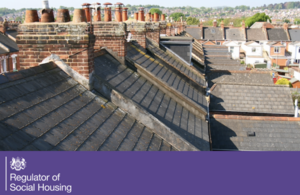Analysis of tenant satisfaction in the social housing sector published by RSH
The Regulator of Social Housing (RSH) has today (4 November 2025) published its analysis of large social landlords’ Tenant Satisfaction Measure (TSM) results.

The TSMs help tenants hold their landlord to account on key issues such as the condition of their home, the repairs service and how complaints are handled.
They also give useful insights for landlords, which they should use to improve their services to tenants and shared owners, as well as providing an important source of information for RSH’s ongoing regulation of the sector.
Nearly half a million tenants were surveyed by landlords for this year’s analysis, reporting how satisfied they were with their landlord across a range of issues, such as whether their home was safe and well-maintained, and whether their landlord listens to and acts on their views.
Landlords must also submit management information about health and safety checks, as well as complaints, repairs, anti-social behaviour and the number of homes meeting the Decent Homes Standard.
The key findings are:
-
Seven in ten tenants in low cost rental accommodation (LCRA) surveyed are satisfied with the overall service from their landlord. Almost one in five tenants surveyed (18%) are dissatisfied.
-
Tenants in LCRA report the highest levels of satisfaction with overall repairs services (74%), that their home is safe (78%), and that their landlord treats them with fairness and respect (78%).
-
Satisfaction with landlord complaint handling remains low at 36%.
-
Shared owners remain less satisfied overall than other social housing tenants (48%).
-
Most landlords report full compliance on each building safety measure according to management information. The vast majority of homes owned by large landlords had completed required gas (99.7%), fire (98.7%), asbestos (97.9%), water (97.9%) and lift safety checks (97.8%).
-
79% of the 11 million non-emergency responsive repairs were completed within target timescales over the year.
This is the second year of TSM collection and publication, with the results indicating modest changes between years, including improvements on reported health and safety performance in management information, particularly for checks on asbestos, water and lifts.
Overall satisfaction in rental tenant surveys collected by telephone – the major collection method used by most landlords - has remained at the same level.
RSH is following up with landlords whose TSM results indicate they are outliers – including on health and safety indicators. RSH is also engaging with landlords where it has concerns about the quality of their data.
RSH uses a range of tools to assess whether a landlord is meeting the outcomes of its consumer standards. This includes inspections, responsive investigations, and scrutinising landlord information – such as the TSMs.
Fiona MacGregor, Chief Executive at RSH, said: “The TSMs give useful insights for tenants and landlords , which should lead to better strategic decisions and stronger engagement with residents.
“TSM data provides an important source of intelligence for our regulation. Although we don’t look at them in isolation, it’s positive to see some early signs of improvement on last year.
“The TSMs are one part of our work to support transparency and accountability in the sector and landlords should reflect on their results to see how they can make services to tenants better. We continue to use a range of tools, including our inspections, to drive landlords to improve social housing long-term.”
Notes to editors
-
Landlords owning 1,000 homes or more need to submit their results to RSH annually. This is a requirement of RSH’s Transparency, Influence and Accountability standard. RSH’s analysis of the TSM results is based on the returns from these large landlords.
-
There are 22 TSMs. 12 are ‘tenant perception’ questions that landlords must ask tenants. 10 are ‘management information’ questions that landlords complete themselves, relating to repairs, complaints and anti-social behaviour.
-
The full suite of TSM information is published on RSH’s website.
-
Landlords typically use more than one collection method to survey a range of tenants and remove barriers to participation (e.g. telephone, face-to-face, online and postal). As anticipated, collection methods can impact on TSM scores, so RSH has published the TSM data for individual landlords grouped according to their main survey collection method. It has also published a breakdown of each landlord’s overall satisfaction broken down by the collection methods they have used. This will make it easier to take collection method into account when comparing different landlords. The published data also includes information on other contextual factors that can influence landlords’ performance, to help landlords and tenants interpret the figures.
-
RSH promotes a viable, efficient and well-governed social housing sector able to deliver more and better social homes. It does this by setting standards and carrying out robust regulation focusing on driving improvement in social landlords, including local authorities, and ensuring that housing associations are well-governed, financially viable and offer value for money. It takes appropriate action if the outcomes of the standards are not being delivered.
-
For general enquiries, email enquiries@rsh.gov.uk. For media enquiries please see our media enquiries page.